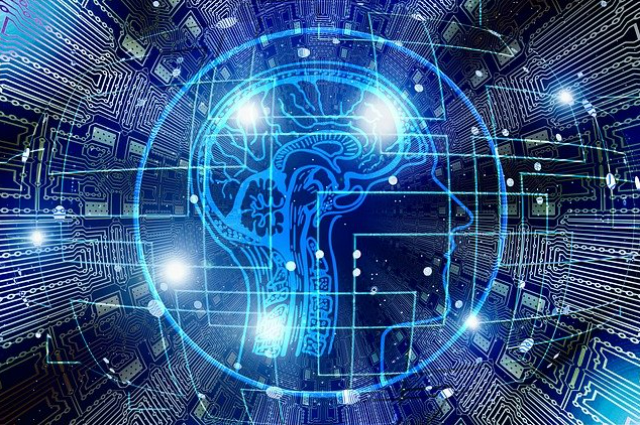The Analogy in Anatomy
The brain is like an organization divided into various departments. Each department has several functions to perform. Sometimes two or more department works in collaboration. It's like the departments that work more, will grow more. The departments that work together have cordial relations and will achieve more. The departments that are least productive need attention and overhauling. To reach the maximum potential of the brain, we have to make use of it. Just like an organization will only succeed, when all its departments are functioning harmoniously.
Brain and Brush-strokes
An artist not only visualizes the object in the eyes of his mind but also draws the object on the sheet using his hands. Taking care of the precision, proportion, perspective, light, and other details just to make his drawing aesthetically pleasing and worthy of appreciation.
The occipital Cortex is responsible for 'visual processing'. All of us see an object just as it is. But an artist who practices drawing builds the efficiency of 'the parietal cortex, which is responsible for motor planning.
Thus the information shared between occipital Cotrex and parietal cortex plays an important role in the drawing.
Music - The Medicine of Mind
Music has a tremendous impact on the brain. Different regions of the brain get affected in a positive way when one listens, sings, composes, or plays an instrument.
Listening to music can improve the efficiency of 'the frontal lobe' which is responsible for planning, thinking, and decision-making. The 'temporal lobe' is a sort of an auditory processing unit of the brain. Upon listening to a song, the language and words get interpreted in the left side of the brain while sounds get processed in the right side of the brain. Thus, listening to music improves both the hemispheres of the brain. There is 'Broca's Area' which is associated with communication abilities. Playing instruments improves this region which makes a person good with expressions.
Then comes the 'Wernicke's Area' which is tasked with comprehension abilities. This part enables the individual to analyze lyrics and enjoy music. 'Amygdala' is our emotional mind which is the foremost thing that is targeted by the musicians. A good musician considers himself successful when his music is able to trigger emotions in his audience. 'Hippocampus region is related to encoding and retrieval of memories. Studies have prescribed 'music therapy' for patients with Alzheimer's disease. Talking of diseases, Parkinson's Disease a person has issues with movement. His locomotive abilities are very limited. Listening to music activates the 'Putman' region which processes rhythm and regulates movement and coordination and so patients with Parkinson's Disease are also given musical therapy to assist their movement.
Brain Loves To Play
Terminological technicalities have been removed to simplify the following section of the article. This section is dedicated to highlighting the impact of games on the brain. It is a misconception among many households that a child should study more and play less. Playing games doesn't make you dumber, instead, it makes you smarter in many ways.
Field Games - It is said, "When your mind is tired, exercise your body, and when your body is tired exercise your mind." Playing field games improve neuro-muscular coordination. It relieves stress and improves overall health. While playing outdoors, our brain is exposed to a variety of stimuli which has to be processed. We are required to make instant decisions. Thus, our reaction-time decreases and we are able to respond to a given situation in less time.
Board Games - Chess sharpens your brain like no other board game can. It trains your brain to observe the pattern on the board and strategize. Every chess piece that you move on the board is a part of a strategy to win. It develops your foresight. Winning in chess comes with two Cs - Calmness and Concentration. No doubt, Chess players have a high IQ. Monopoly is about board game which requires a lot of decision-making. Ludo is not entirely luck-based, it too requires the skill of assessing, speculating, and making a wiser choice while moving the pieces.
Video Games - Researchers have found that playing video games can be beneficial. In fact, playing video games can lead to the structural and functional development of the brain. Structural changes like enlarging certain regions in the brain. Functional changes will include the betterment of memory, attention span, and visual-spatial skills. Certain games require strategy-making skills. When the levels get harder, the player is motivated to use his mental resources to get through them. Hence, playing video games is not all that bad unless you're playing excessively.
Conclusion
The crux is that mental faculties are utilised in everything we do. When it comes to hobbies and extra-curricular, many of us consider ourselves to be guilty. Those who have narrowed their perception to the only academic building through books, miss out on the fact that learning isn't just book-based but also experience-based. Books will provide us with information and give us a perspective, but extracurricular can give us that brain which learns more, thinks faster, and focuses better. My message to the readers is to blend learning with books and extracurricular for brain enhancement and personality development.

Image by Gerd Altmann from Pixabay
